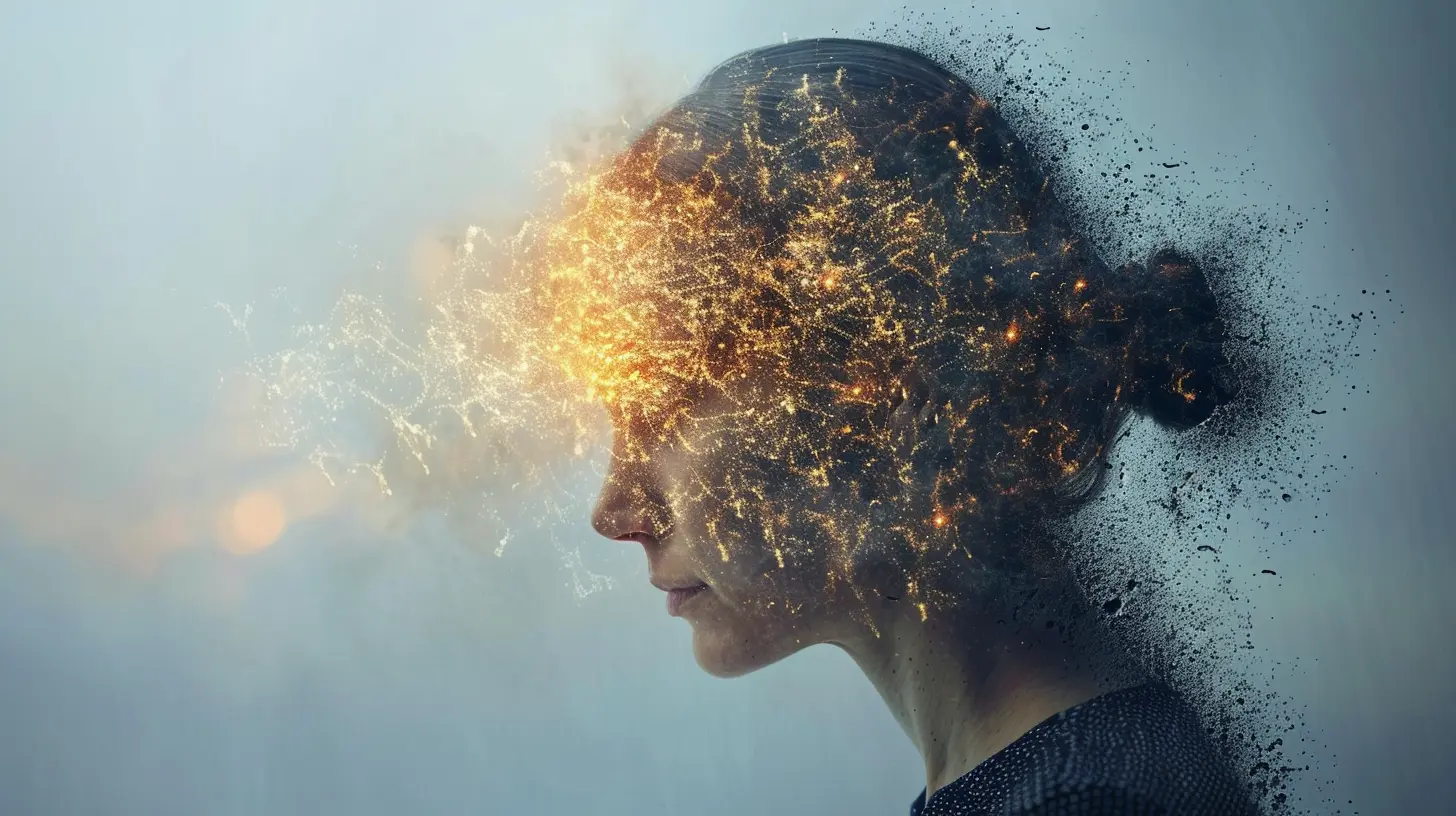The Impact of Hormones on Mood and Behavior
4 September 2025
Ever felt like your emotions were riding a rollercoaster—and you weren’t the one in the driver’s seat? You’re not alone. Our bodies are wired in complex ways, and one of the invisible forces pulling the strings behind the scenes is hormones.
These tiny chemical messengers play a massive role in shaping not just how we feel but also how we behave. Hormones influence everything from happiness and stress to motivation, love, and even decision-making. Wild, isn’t it?
In this post, we’re going to dive deep into the fascinating, often misunderstood world of hormones and how they steer our moods and behaviors. So, buckle up, because we're about to connect the dots between your biology and your emotional experiences—all in a way that actually makes sense.
What Are Hormones, Really?
Let’s start with the basics. Hormones are chemical substances produced by glands in your endocrine system. Think of them as text messages sent out to different parts of your body, telling them what to do and when to do it.A few of the major glands in the endocrine system include:
- Pituitary gland – the boss of all glands
- Adrenal glands – your built-in stress responders
- Thyroid gland – regulates metabolism and energy
- Ovaries/Testes – responsible for sex hormones
And the hormones they release? Well, they’re involved in nearly every bodily function you can name: growth, metabolism, sleep, reproduction, and yup—your moods.
How Hormones Affect Your Mood
You know those days when everything seems off? Your head’s fuzzy, you're snapping at the littlest things, and your motivation is somewhere between zero and “why bother”? That could be your hormones doing their thing.1. Cortisol: The Stress Hormone
Ah, cortisol—the hormone that shows up when life feels like too much. Your body releases cortisol when you’re stressed, and while it’s helpful short-term (like helping you react quickly in emergencies), too much of it over time is a mood killer. Literally.High cortisol levels are linked to:
- Anxiety
- Depression
- Sleep problems
- Brain fog
- Irritability
Ever notice how you’re more emotional when you haven’t slept well or are under a lot of pressure? That’s cortisol having a field day.
2. Serotonin: The Feel-Good Regulator
If your mood was a seesaw, serotonin is what helps keep it balanced. It’s often called the “happy hormone,” but it’s more like your body’s emotional thermostat.Low levels of serotonin are associated with:
- Depression
- Anxiety
- Low self-esteem
- Mood swings
Fun fact? About 90% of serotonin is made in your gut, not your brain. So that “gut feeling” you get isn’t just an expression—there’s a literal connection between your digestive health and your mood. Mind. Blown.
3. Dopamine: The Motivation & Reward Hormone
Dopamine is your brain’s hype man. When you're chasing goals, finishing a project, or even just treating yourself to your favorite dessert—dopamine is cheering you on.It’s responsible for:
- Pleasure
- Motivation
- Focus
- Goal-driven behavior
But like that friend who parties too hard, too much dopamine can cause problems. It’s been linked to addiction, impulsive behavior, and even mania in bipolar disorders. Balance is everything.
4. Oxytocin: The Love Hormone
Ah, oxytocin—the warm and fuzzy one. Released during hugs, cuddles, and moments of connection, this hormone helps us bond with others and feel secure.It boosts:
- Trust
- Empathy
- Relationship satisfaction
Lack of oxytocin can lead to feelings of loneliness, detachment, and emotional numbness. So if you’re feeling emotionally disconnected, it might not just be “in your head”—your hormones could use a hug too.
5. Estrogen and Progesterone: Mood Swings 101
Ladies, if you’ve ever felt like your emotions are on a hamster wheel during your menstrual cycle, blame these two.Estrogen boosts serotonin, and when it drops (like before your period), you may feel irritable, anxious, or blue. Progesterone, which rises after ovulation, can make you sleepy or cause mood dips.
Sound familiar? That’s why PMS (Premenstrual Syndrome) and PMDD (Premenstrual Dysphoric Disorder) can feel like emotional whiplash.
6. Testosterone: Not Just for Men
While often labeled the “male hormone,” testosterone also plays a big role in women’s health. It fuels:- Confidence
- Energy
- Libido
- Goal-directed behavior
Too little can make you feel tired, unmotivated, and even a bit weepy. Too much, on the other hand, can increase aggression and impulsivity.
Hormonal Imbalances: When Things Go Sideways
We all have hormonal ebbs and flows—every day, even every hour. But sometimes things get out of whack, and that’s when you really start to feel it.Signs of hormonal imbalance might include:
- Mood swings that seem extreme
- Feeling anxious or depressed for no clear reason
- Low energy, no matter how much sleep you get
- Weight changes without effort
- Irregular menstrual cycles
- Brain fog and forgetfulness
So, what causes these imbalances? It could be anything from chronic stress and poor diet to medical conditions like thyroid disorders, PCOS, or menopause.
Hormones & Behavior: More Than Just Mood
Mood is just one part of the puzzle—hormones also influence what we do. Think about how love, fear, stress, or ambition changes your behavior. That’s your hormones nudging (or shoving) you in different directions.Hormones and Social Behavior
Oxytocin and serotonin help us trust and connect with others. Low levels can make social interactions feel awkward, even threatening, while high levels help us bond and empathize.Hormones and Risk-Taking
Testosterone is infamous for pushing impulsive and risky behavior—not just in men but in women too. That spontaneous road trip or bold career move? Might be testosterone giving you a confidence boost.Hormones and Decision-Making
Stress (cortisol) can narrow your focus and make you reactive instead of thoughtful. Dopamine, on the other hand, can make you overly optimistic about outcomes, potentially leading to poor choices if left unchecked.How to Support Hormonal Balance Naturally
Here’s the good news: you’re not at the mercy of your hormones. There are simple habits and lifestyle changes that can help keep those chemical messengers in check.🥗 Eat Smart
Food is fuel—and for hormones, it’s also information. Eating a balanced diet with plenty of healthy fats, fiber, and protein can help regulate everything from insulin to estrogen. Avoid too much sugar and ultra-processed foods—they mess with your hormone harmony.💤 Prioritize Sleep
Hormones like melatonin, cortisol, and growth hormone rely on good sleep. Aim for 7–9 hours and keep your sleep schedule consistent.🧘♀️ Manage Stress
High stress = high cortisol = mood swings and burnout. Try mindfulness, journaling, deep breathing, or even five-minute walks to bring your stress levels down.🏋️♂️ Move Your Body
Exercise is like hitting the refresh button for your hormones. It boosts dopamine, serotonin, and endorphins while reducing stress hormones. It doesn’t have to be intense—a brisk walk counts!💧 Stay Hydrated
Water supports every system in your body, including your endocrine system. Dehydration can mess with hormone production, so keep that water bottle handy.🌞 Get Sunlight
Sun exposure helps boost vitamin D, which supports mood and hormonal balance—especially serotonin. Just 15–20 minutes a day can make a difference.When to Seek Help
If your hormones are seriously out of balance, lifestyle tweaks might not be enough. Don’t hesitate to talk to a healthcare professional, especially if you’re dealing with:- Ongoing depression or anxiety
- Sudden weight changes
- Chronic fatigue
- Irregular or painful periods
- Severe mood shifts around your cycle
Hormone testing, therapy, or medication may be needed—and there’s no shame in getting help. Your mental health is worth it.
Final Thoughts
Our hormones are basically the DJs of our inner world—spinning tracks that set the vibe for how we feel and act. When they’re in sync, life flows. But when there’s a hormonal hiccup, everything from your mood to your motivation can take a hit.Understanding how these chemical messengers work gives you the power to tune into your body and take care of yourself more mindfully. And while you can’t always control your hormones, you can influence how they affect your mood and behavior.
So next time you’re feeling totally “off,” don’t be too hard on yourself. Chances are, your hormones are just doing their thing—and with a little support, they'll get back in rhythm.
all images in this post were generated using AI tools
Category:
PsychologyAuthor:

Eliana Burton
Discussion
rate this article
1 comments
Holly McDowell
In the dance of hormones, our spirits sway, Each pulse a whisper, guiding night and day. With unseen hands, they shape our dreams, Crafting joy and sorrow in delicate seams. Let us explore this silent tide, Where body and mind in harmony abide.
September 23, 2025 at 4:05 AM

Eliana Burton
Thank you for beautifully capturing the intricate relationship between hormones and our emotional landscape. Your poetic insight highlights the profound influence hormones have on our daily experiences.


